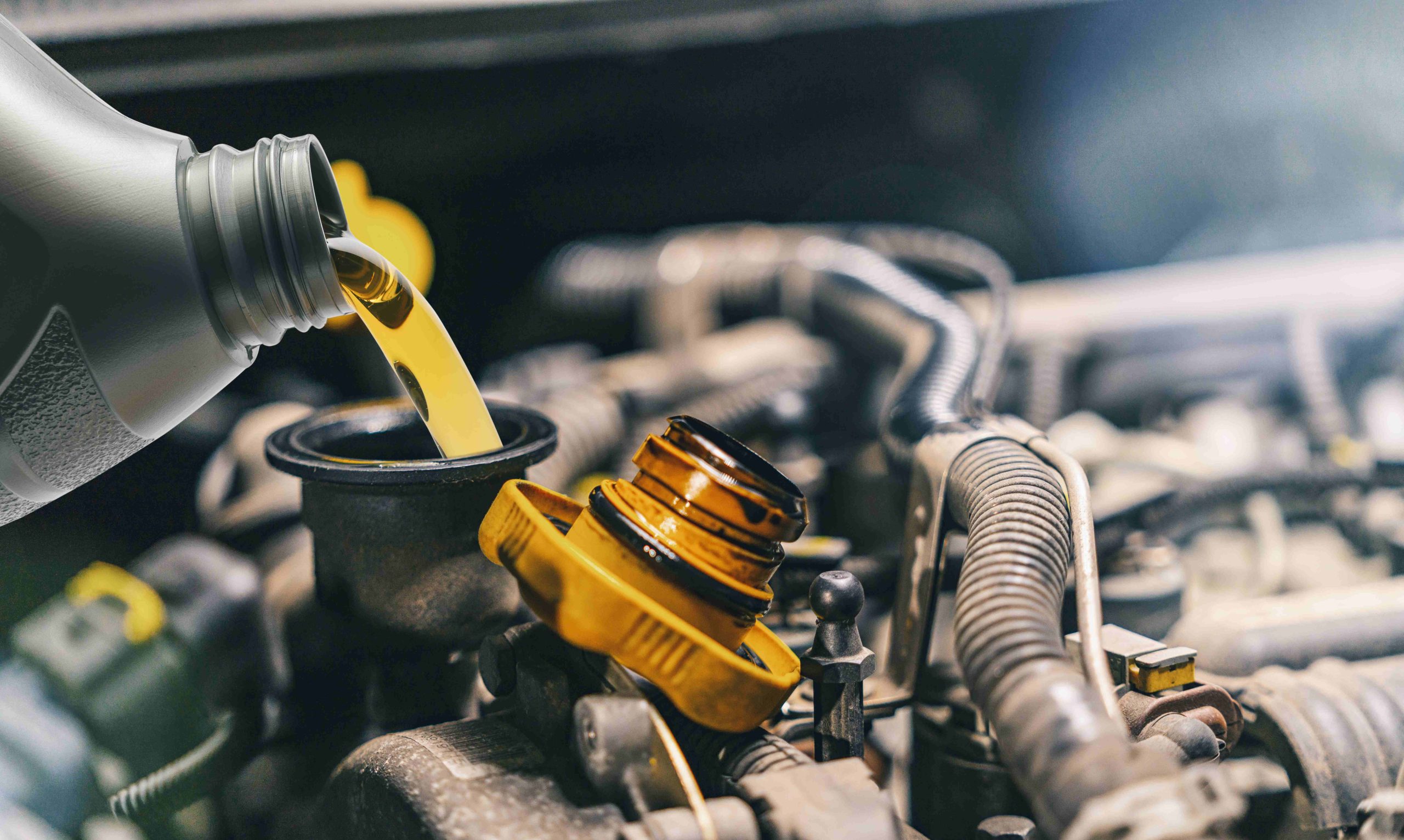The Importance of Regular Oil Changes for Your Vehicle’s Health
Every vehicle owner knows that routine maintenance keeps a car running smoothly — and among all maintenance tasks, regular oil changes are arguably the most important. Whether you drive a high-performance European car like an Audi or BMW or a dependable family sedan, oil changes play a vital role in protecting your engine and preserving its longevity.
In Oakville and beyond, many vehicle breakdowns can be traced back to something as simple as delayed or neglected oil service. Understanding why this small maintenance task matters — and how it impacts overall vehicle performance — can help you save thousands in repair costs and keep your engine in peak condition.
Why Engine Oil Is So Important
Your car’s engine consists of hundreds of moving metal parts that generate heat and friction every second it’s running. Engine oil serves several essential functions that make it one of the most critical fluids in your vehicle:
-
Lubrication: Oil forms a protective layer between metal surfaces, preventing them from grinding together and reducing wear.
-
Cooling: It helps dissipate heat away from vital engine components, preventing overheating.
-
Cleaning: Oil collects dirt, carbon deposits, and metal shavings, carrying them to the filter where they’re trapped.
-
Protection: Fresh oil prevents rust and corrosion inside the engine, extending its lifespan.
Without proper oil circulation, your engine would quickly seize, overheat, or suffer severe internal damage — leading to costly repairs or even complete engine failure.
What Happens When You Skip Oil Changes
Many drivers underestimate the consequences of neglecting regular oil changes. When oil isn’t replaced on time, it gradually becomes thick, sludgy, and contaminated. This can have several negative effects:
-
Reduced lubrication – Friction increases, leading to excessive wear on pistons, valves, and other internal parts.
-
Overheating – Dirty oil loses its ability to regulate temperature, causing the engine to run hotter.
-
Loss of performance – Sludge buildup restricts oil flow, making your engine sluggish and less efficient.
-
Increased fuel consumption – A poorly lubricated engine works harder, burning more fuel.
-
Potential engine failure – Over time, neglected oil can cause irreversible damage, requiring an expensive rebuild or replacement.
A simple, affordable oil change performed regularly can prevent all of these issues — making it one of the most valuable habits for any car owner.
Recommended Oil Change Intervals
How often you should change your oil depends on several factors — including your vehicle type, driving conditions, and oil quality.
-
Conventional oil: Typically every 5,000 km or every 3–4 months.
-
Synthetic oil: Usually every 8,000 to 10,000 km, sometimes longer for newer vehicles.
-
European vehicles: Often follow manufacturer-specific intervals and require high-grade synthetic oil.
If you frequently drive in heavy traffic, harsh weather, or take short trips that prevent the engine from fully warming up, you may need oil changes more frequently.
Checking your owner’s manual or consulting a trusted technician ensures you’re following the correct maintenance schedule for your car.
Recognizing When It’s Time for an Oil Change
While service intervals are a good guideline, your car often gives clear signs that it’s due for an oil change. Paying attention to these can help prevent damage before it occurs:
-
Oil warning light on the dashboard
-
Dark, thick, or gritty oil on the dipstick
-
Louder engine noise or knocking sounds
-
Burning smell from under the hood
-
Decreased fuel efficiency
Ignoring these warning signs can shorten your engine’s life significantly. It’s always better to service your car early rather than wait for a problem to appear.
Types of Engine Oil Explained
There isn’t a one-size-fits-all solution when it comes to engine oil. Choosing the right type matters — and using the wrong one can affect performance or even void warranties.
-
Conventional Oil: Standard mineral-based oil suitable for older or less demanding engines.
-
Synthetic Oil: Chemically engineered for superior protection, higher heat resistance, and longer life — ideal for modern and European vehicles.
-
Synthetic Blend: A mix of both, offering better protection than conventional oil at a lower cost than full synthetic.
-
High-Mileage Oil: Formulated with additives to protect engines with over 120,000 km.
Professional technicians always check manufacturer recommendations to ensure the right oil type and viscosity are used for each vehicle.
The Benefits of Regular Oil Changes
Regular oil changes might seem like a small task, but their benefits extend far beyond cleaner oil. Here’s why it pays off in the long run:
-
Improved Engine Performance: Clean oil allows parts to move freely, maintaining optimal performance.
-
Extended Engine Lifespan: Fresh oil reduces wear and protects critical components.
-
Better Fuel Economy: A well-lubricated engine runs more efficiently, using less fuel.
-
Reduced Emissions: Clean oil helps minimize carbon buildup and harmful exhaust gases.
-
Fewer Repairs: Consistent maintenance prevents overheating, friction damage, and sludge buildup.
Over time, regular oil changes can save thousands of dollars by preventing costly repairs and keeping your vehicle performing like new.
Professional vs. DIY Oil Changes
While some drivers prefer changing their oil at home, there are strong reasons to rely on professional service centres for this task — especially for modern or European vehicles.
Professional technicians ensure:
-
The correct oil grade and filter are used
-
The old oil is fully drained and safely disposed of
-
The service includes a basic inspection of fluid levels, belts, and hoses
-
Any potential issues are spotted before they become expensive repairs
DIY oil changes may save a few dollars upfront, but professional servicing provides long-term reliability and peace of mind.
The Role of Oil Filters
Oil filters are often replaced during every oil change, and for good reason. As oil circulates, the filter traps dirt, carbon particles, and metal debris that accumulate inside the engine.
Over time, these contaminants can clog the filter and restrict oil flow, forcing the engine to work harder. Replacing the oil filter regularly ensures a clean and consistent flow of oil — protecting your engine’s health and performance.
How Weather Affects Oil Performance
Climate plays a significant role in oil performance. In cold weather, oil thickens and takes longer to circulate, which can strain your engine during start-up. In hot weather, oil thins out, reducing its protective properties.
Using the correct oil viscosity for Oakville’s seasonal conditions helps maintain stability and protection year-round. Professional auto centres always select the right oil grade based on manufacturer guidelines and local climate.
Why Oil Changes Are Especially Important for European Cars
European vehicles — such as Audi, BMW, Mercedes-Benz, and Volkswagen — are engineered with precision and performance in mind. These cars often feature advanced engines that operate under higher temperatures and tighter tolerances.
Using the correct European-approved synthetic oil is essential to:
-
Maintain manufacturer warranty coverage
-
Support high-performance engines
-
Reduce carbon buildup in turbocharged systems
-
Optimize fuel economy and emissions control
Regular, specialized servicing ensures your European vehicle continues to perform exactly as its engineers intended.
What to Expect During an Oil Change Service
A professional oil change at a trusted auto service centre in Oakville typically includes:
-
Draining the old oil completely
-
Replacing the oil filter
-
Filling with new, high-quality oil
-
Checking fluid levels (coolant, brake, power steering)
-
Visual inspection of belts, hoses, and undercarriage
This quick yet vital service usually takes less than an hour — but the benefits last thousands of kilometers.
The Bottom Line
Regular oil changes are the foundation of reliable car maintenance. They keep your engine clean, your performance strong, and your vehicle dependable for every drive. Skipping this simple service can lead to expensive, preventable problems — while staying consistent ensures a long, healthy life for your car.
Whether you drive through Oakville’s busy roads or take long highway trips, routine oil changes will protect your engine and enhance overall performance. It’s one of the easiest — yet most effective — ways to ensure your vehicle runs at its best, year after year.













